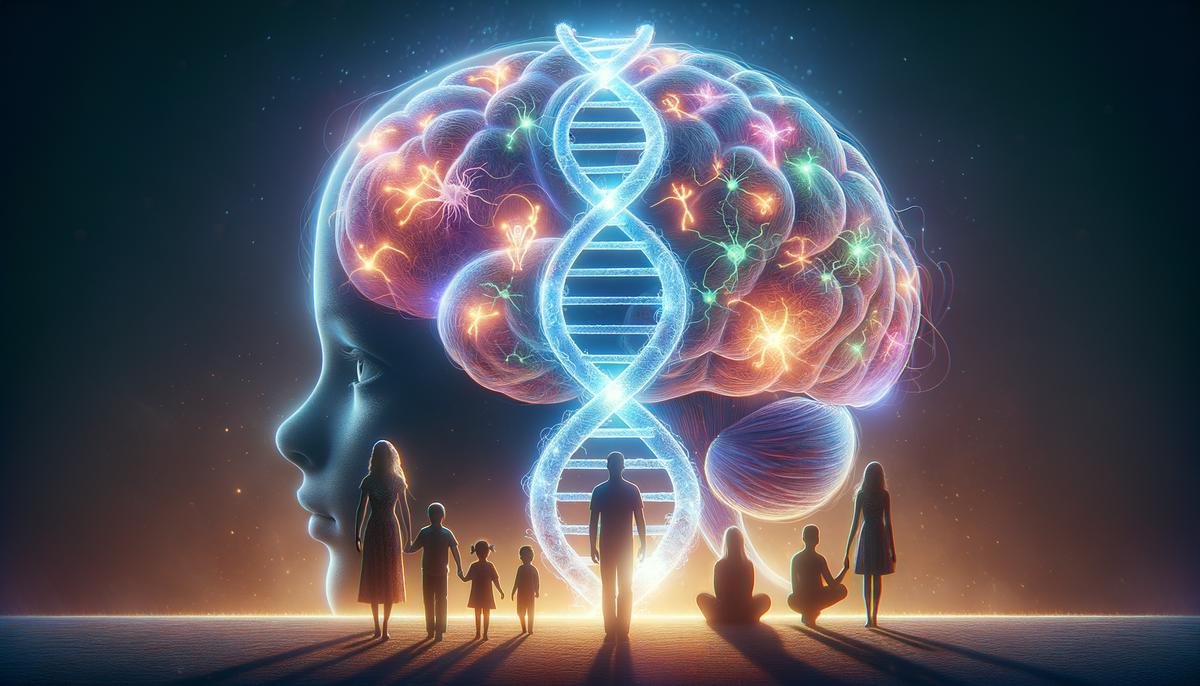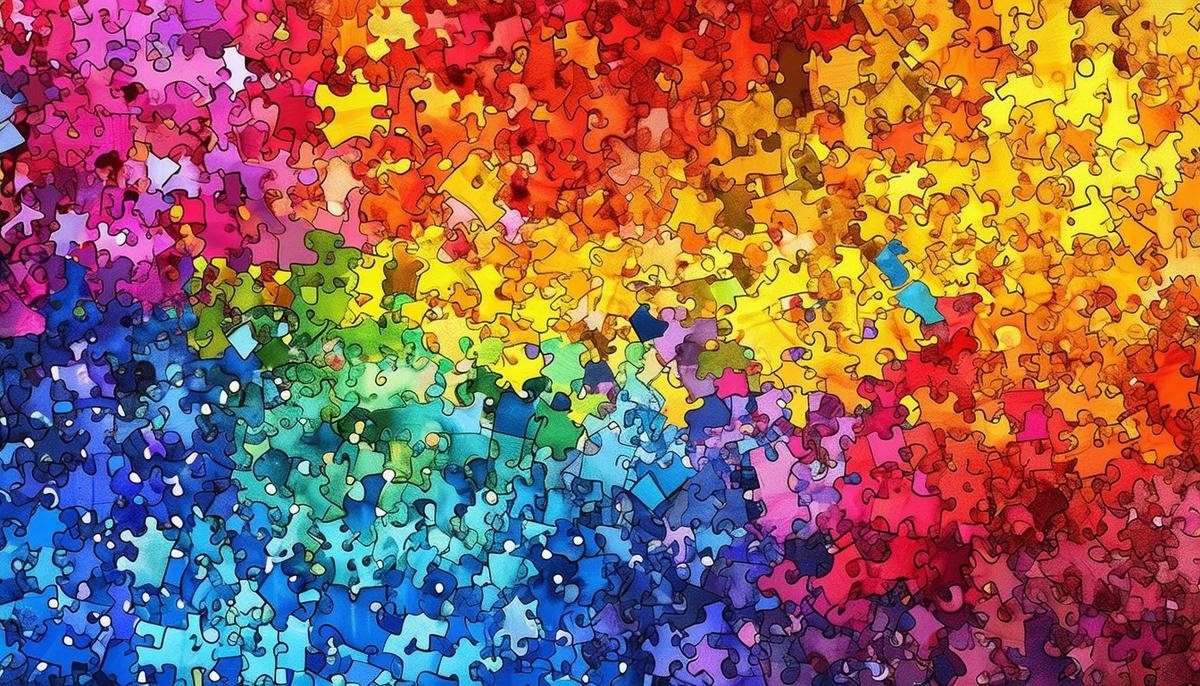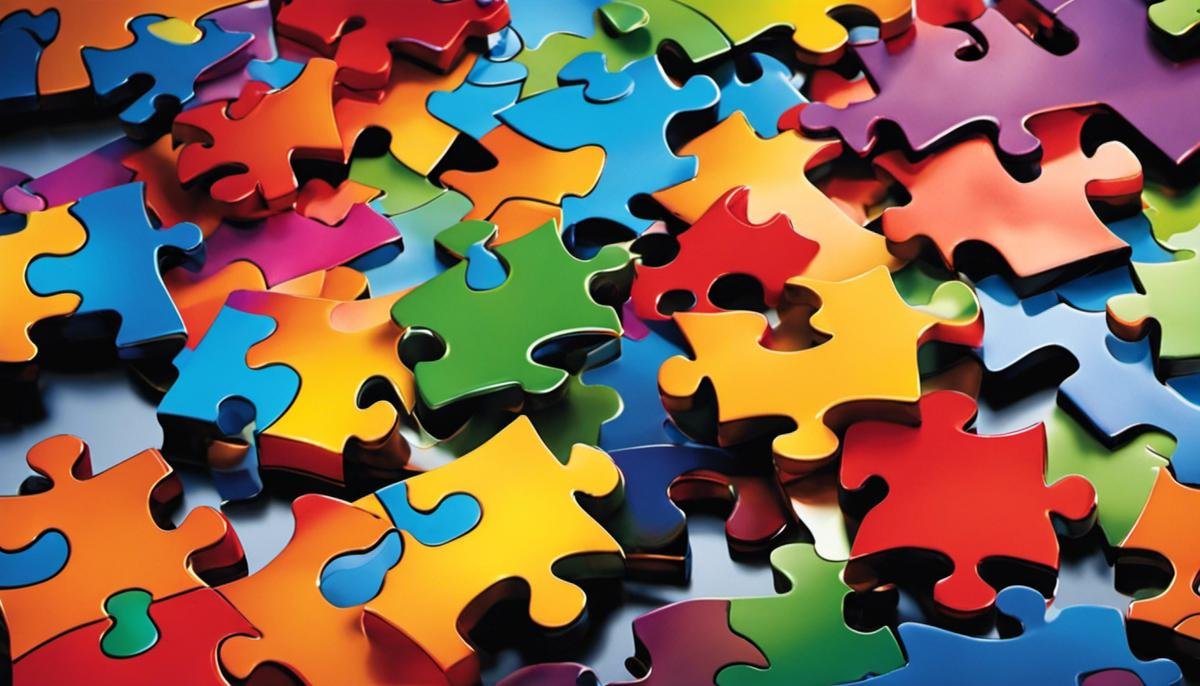
In a society that values typicality, the extraordinary can often go misunderstood, misjudged, and overlooked. One such case is Autism – a neurodevelopmental condition that affects communication and behavior in diverse ways. In recent times, a shift in narrative has emerged where well-known figures and celebrities, including the pioneering tech mogul Elon Musk, have disclosed being on the autism spectrum. This disclosure not only breaks the stereotype associating Autism with disability, but it also broadens our understanding of this condition by bringing it into the mainstream consciousness.
Understanding Autism
Unfolding Autism: Understanding and Recognizing the Signs
Autism, also known as autism spectrum disorder (ASD), is a developmental condition that affects communication and behavior. Although it can be identified at any age, the symptoms typically become noticeable within the first two years of a child’s life. As our grasp of this complex condition improves, awareness grows. Knowing more about autism can empower parents to recognize the signs, facilitating a swifter intervention and prompting necessary adjustments at home.
Defining Autism
The term “spectrum” refers to a wide range of manifestations encompassing diverse strengths and challenges that are unique to each person with autism. Conversational difficulties, intense engagement in specific activities, feelings of overwhelming sensory inputs, and a strong preference for routine are common indicators of autism. However, it’s worth noting that these symptoms can coexist with exceptional abilities in visual, academic, or musical skills, among others.
Detecting the Signs
Parents often report noticing differences in their children’s social interaction, communication, and play compared to their peers. They may observe unique play patterns, unusual body movements, and the repetition of specific words or phrases.
Early signs may involve a lack of smiles or joyful expressions by six months, or the absence of babbling or back-and-forth gestures, such as pointing or waving, by 12 months. Recognition of inappropriate social responses, such as failure to respond to their name by 12 months or reduced interest in social stimuli, can also be a trigger for parents to seek professional advice.
Diagnosing Autism
A diagnosis of autism involves a two-step procedure. The process starts with a development screening during regular doctor check-ups, which typically happen at nine months, 18 months, 24, or 30 months. Additional screenings may be recommended if a child is at a higher risk for developmental problems due to preterm birth or having a sibling with ASD.
If the child screen’s results indicate some potential concerns, a comprehensive diagnostic evaluation would follow. This assessment includes a hearing and vision screening, genetic testing, neurological testing, and other medical examinations. Observations of a child’s behavior and interviews with parents about the child’s developmental milestones are also integral parts of this evaluation.
Importance of Early Diagnosis
The sooner autism is identified and diagnosed, the sooner interventions can begin. While there’s currently no cure for autism, early detection and intervention can improve a child’s development and quality of life enormously. With understanding, patience, and appropriate resources, children with autism can have fulfilling lives and contribute positively to their families and communities.
Embracing the Journey
As with any challenge, facing the possibility of autism in a child requires fortitude and love. Allow these experiences to build resilience and hope, and understand that it is absolutely alright to seek support. Be proud—after all, nurturing a child on the autism spectrum takes extraordinary strength. Let the journey of parenting be a beautiful learning experience in embracing differences. Parenthood isn’t about creating the perfect path for children but about equipping them to navigate their unique journey.
Through understanding, acceptance, and informed support, each child can reach their potential and find their own expression of success. We continuously learn as parents, and with the right approach, an autism diagnosis becomes not a sentence, but a new chapter in our parenting book. Embrace it with an open heart, as you encourage the same attitude in your child.
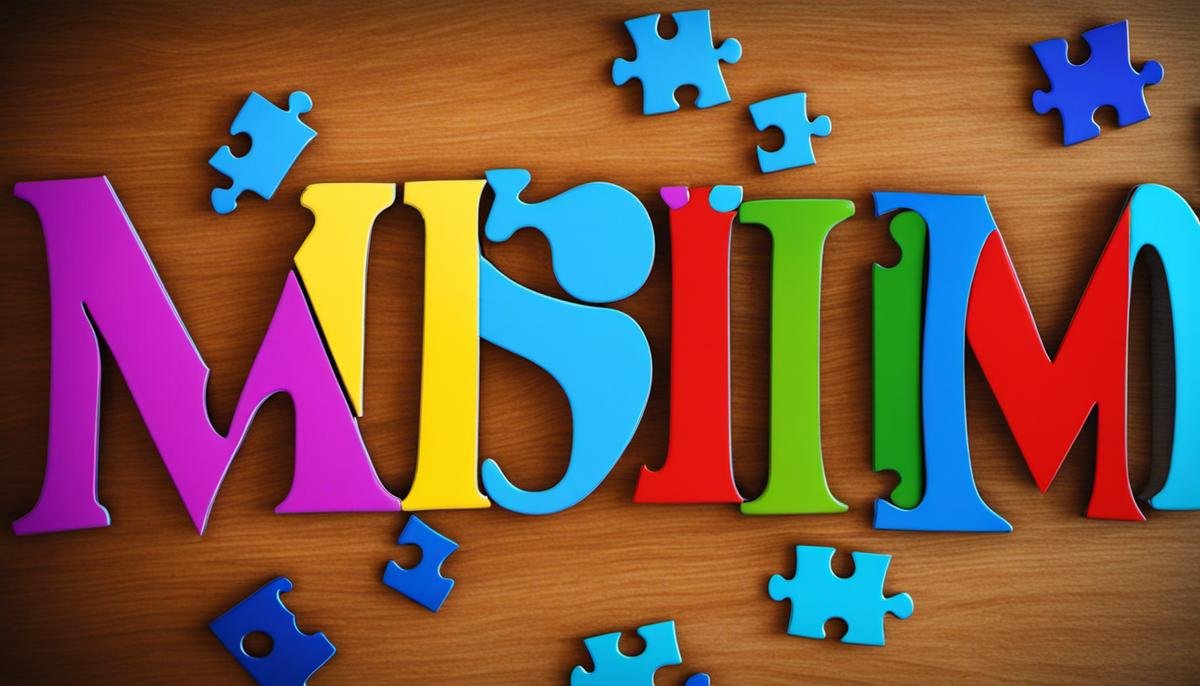
Elon Musk and Autism
Elon Musk and Autism: Shedding Light on ASD
Tech-entrepreneur Elon Musk, the CEO of Tesla and SpaceX, is one of the most innovative and influential figures of our generation. During his May 2021 hosting stint on the popular television program “Saturday Night Live,” Musk revealed something personal that now adds another dimension to his multifaceted life.
That’s right, in a candid revelation that caught the audience off-guard, Musk openly declared, “I’m actually making history tonight as the first person with Asperger’s to host SNL.” This was a brave and unprecedented revelation that once again spotlighted autism spectrum disorder (ASD).
This statement meant Musk aligns himself with the Asperger’s Syndrome component within the autism spectrum. It’s important to note though, that Asperger’s Syndrome has been enveloped within ASD as per the current diagnostic guidelines of DSM-5. People with former Asperger’s diagnoses exhibit high-functioning abilities, where communication and language development seem relatively normal, but they encounter difficulties in social interactions.
Musk’s public disclosure naturally, opened dialogues both online and offline about ASD in adults, and more importantly, it reminded us all that being on the autism spectrum doesn’t signal an end to achieving great things. Instead, it’s another unique aspect of an individual’s life that shapes their experiences, and sometimes results in exceptional strengths that can be directed towards their passions, just like Musk has done in the fields of tech and space exploration.
The revelation is a reminder – that autism doesn’t necessarily inhibit an individual’s capability to lead a meaningful and impactful life. While the struggles associated with this condition are real and cannot be downplayed, Musk’s life story clearly indicates that with the right opportunities, support, and determination, individuals with autism can achieve brilliance.
Moreover, this disclosure has forced society to rethink the stereotypes surrounding ASD. It is high time we remember that every person with autism is much more than their diagnosis. They are individuals with unique talents, capabilities, and dreams.
So, yes, to answer the question we set out with – Elon Musk has publicly disclosed that he is autistic, specifically associated with what was formerly known as Asperger’s Syndrome. His revelation reinforces that autism is not a barrier to success and serves as a step forward towards normalizing the discussion around ASD.
In conclusion, let us all aim to foster a world that does not stigmatize autism, but instead, recognizes the unique strengths and potential in every individual, whether they are on the spectrum or not. Let’s learn more, understand better, and continue supporting each other in this journey of life. Because, as Musk’s story reminds us, everyone has a unique and important role to play in our shared future.
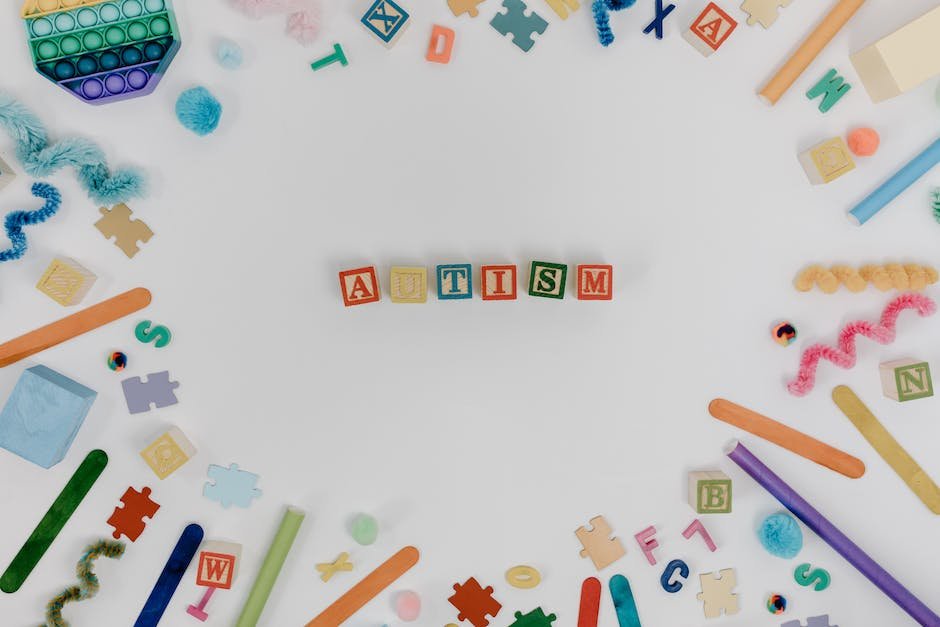
Autism in Celebrities
Let’s navigate the world of autism a little further by exploring some well-known personalities who are also on the autism spectrum. This topic may provide inspiration and showcase how individuals with autism can and do lead successful, compelling lives.
Let’s start with Dan Aykroyd, a renowned comedian and Ghostbusters star, who was diagnosed with Asperger’s Syndrome in his adulthood. His Asperger’s is believed to have fueled his genius for character development, playing a crucial part in his successful career. He once stated his obsession with cops and robbers led him to create the beloved hit film, Ghostbusters.
Singer Susan Boyle, who approached worldwide fame on Britain’s Got Talent, is another celebrity on the spectrum. Diagnosed with Asperger’s Syndrome in 2012, Susan has communicated openly regarding her journey with autism. She stresses that her diagnosis has not defined her or stunted her growth as a performer but rather has made her understand herself better.
You may remember Heather Kuzmich from America’s Next Top Model Cycle 9. Heather, both a model and a graphic designer, was diagnosed with Asperger’s Syndrome when she was a teenager. Her stint on the reality show was ground-breaking, proving that an autism diagnosis is not a barrier and one can thrive when given a platform to showcase their talents, regardless of their developmental condition.
Pulitzer Prize-winning book critic, Michael Dirda, is another notable personality on the spectrum. Recognized for his unique and keen perspective, Michael has expressed that his ‘hyperlexia’, a condition on the autism spectrum characterized by above-average word-reading ability, may have contributed to his successful career.
One more impressive name on this list is Temple Grandin, a professor and prominent author in the livestock industry. Diagnified with autism at a young age, Temple has made enormous contributions to the farming industry. She invented the “hug box”, a device to calm those on the autism spectrum. Temple demonstrates that challenges can be valuable assets when embraced.
These examples go to show that autism does not hinder the pathway to success. On the contrary, it can serve as a different approach to seeing the world and may contribute to creativity and meticulousness. Acknowledging this fact empowers, encourages, and aids us in promoting an inclusive, understanding world where diversity is celebrated, and each individual’s unique attributes are honored.
So, next time you come across information about autism or meet someone on the spectrum, remember to look beyond the diagnosis. Recognize their unique strengths and embrace what they bring to the table.
Together, we can all contribute to creating a world that acknowledges and appreciates neurodiversity. Recognizing celebrities with autism is just one way to drive home this message and push for adaptation, understanding, and inclusion.

Parenting a Child with Autism
Supporting a Child with Autism: Acknowledge Individuality, Advocate, and Adapt
Parenting a child with autism requires you to put on your superhero cape daily and step up to the challenge. It’s about being there to embrace your child’s individuality and help them navigate through life in their unique way. It requires advocacy in ensuring that your child is receiving the services and resources they need, and adaptability in terms of adjusting your lifestyle to accommodate your child’s needs.
Autistic children have their unique abilities – nurturance is key to the development of these abilities. Their uniqueness can be seen in the ability to notice fine details, exceptional long-term memory, strong interest in particular topics, and an honest, rule-governed approach to social interactions. As parents, it is crucial to capitalize on these strengths to foster their self-esteem and sense of achievement.
It’s undeniable that parenting a child with autism demands a hefty dose of patience, but it is equally filled with beautiful moments of understanding and growth. Your child’s ability to see the world from a different perspective can also offer a refreshing viewpoint, drawing your attention to details you otherwise might oversee.
Successful parenting of a child with autism hinges on effective communication. Understanding your child’s unique form of communication is essential. Whether it’s through non-verbal cues, drawings, or sign language, finding a method that works best for your child can go a long way in reducing frustrations and building stronger bonds.
Additionally, creating a supportive and stable environment for your child is of paramount importance. This includes establishing predictable routines, lessening harmful sensory input, and introducing safe and encouraging avenues for multi-sensory experiences. Remember, the goal is not to push your child to adapt to a typical environment but to modify the environment to meet your child’s needs.
Further, be open and willing to reach out for help, because let’s face it – it takes a village. Involve your family, friends, and the community in your journey. Let them understand your child’s condition and the best way they can support. There’s a wealth of support groups both online and offline where parents can discuss, learn, and share experiences.
It’s also vital to look after yourself and keep your resilience tank full. Autism can have a significant impact on family life, and parents often report high levels of stress. Taking care of your mental, emotional, and physical well-being is not self-indulgent; it is really about preserving yourself for the long haul.
Above all, remember that being a parent to a child with autism brings loads of rewarding and love-filled experiences. Your child will perceive the world in a unique and inspiring way, and who knows, you might just find yourself learning more from them than they do from you.
In conclusion, parenting a child with autism involves acknowledging the individuality, advocating for their needs, and adapting to their world. It’s a journey that takes strength and resilience, but one that is little short of a beautiful spectrum of experiences. After all, wouldn’t life be boring without a splash of different colors? Now, onto you. Go on, put on that superhero cape – you’ve got this.

Amidst the gleaming success stories of Elon Musk, and other famous individuals on the autism spectrum, it’s important to illuminate the realities of parent-child relationships within the framework of Autism. Parents don’t just shape their child’s reality, but also learn from the unique perspectives that their autistic children bring to their world. The journey may be challenging, but it’s filled with valuable lessons, unanticipated delights, and profound love. As we celebrate the notable individuals with Autism, let us also remember the families that nurture them, the society that accepts them, and the diverse talents that they bring to our world.



